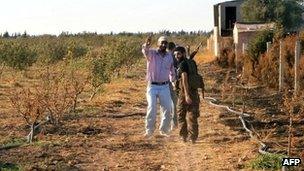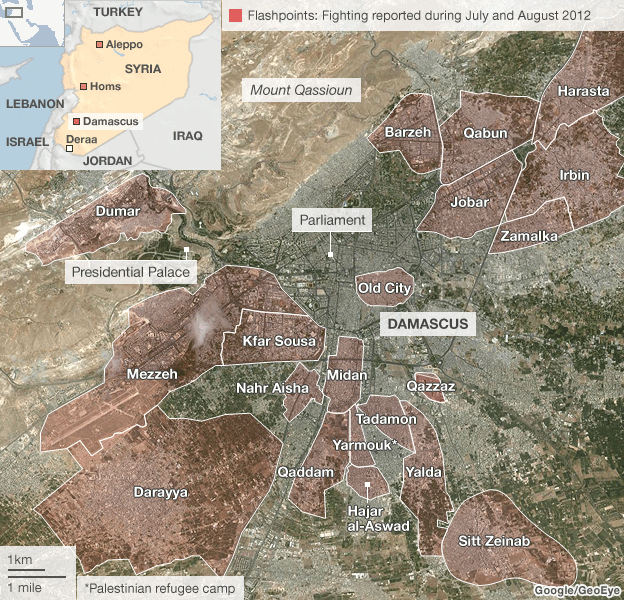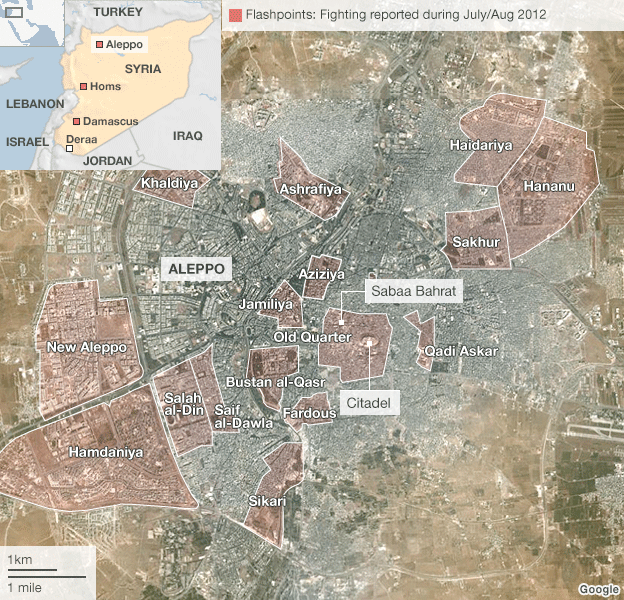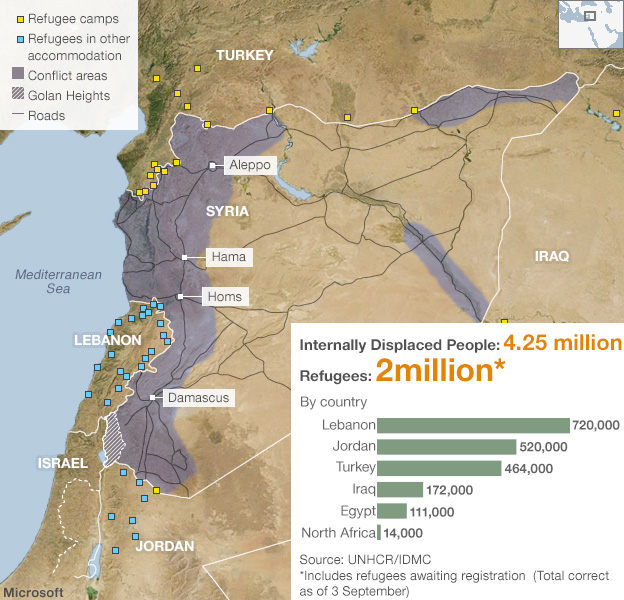Syria crisis: Food shortage warning from UN WFP and FAO
- Published

The conflict has badly affected the country's agricultural sector
Some 1.5 million people in Syria will need urgent food aid over the next few months, according to an assessment by the UN and the Syrian government.
Over the next year, up to three million people are expected to be in need of food, crop and livestock assistance.
The report also says the agricultural sector has lost $1.8bn (£1.15bn) this year as a result of the conflict.
The UN says the economic losses are grave, but the humanitarian implications are far more pressing.
The report findings, external are based on a Joint Rapid Food Security Needs Assessment mission, conducted in June 2012, by the UN Food and Agriculture Organization (FAO), the UN World Food Programme (WFP) and Syria's Ministry of Agriculture and Agrarian Reform.
"The effects of these major losses are first, and most viciously, felt by the poorest in the country. Most of the vulnerable families the mission visited reported less income and more expenditure - their lives becoming more difficult by the day," said WFP Representative and Country Director in Syria Muhannad Hadi.
Some of the findings include the following:
Damage to the agricultural sector includes losses and damage to crops, livestock and irrigation systems
Close to a million people need crop and livestock assistance such as seeds, food for animals, fuel and repair of irrigation pumps
Strategic crops, such as wheat and barley, have been badly affected as well as cherry and olive trees, and vegetable production
The crisis is due to the on-going insecurity, coupled with a prolonged drought
Among those farmers needing immediate assistance - around one third of the rural population - 5%-10% are reported to be female-headed households
Deforestation is on the rise with farmers turning to the forest for fire wood, due to unavailability of cooking gas and fuel.
Some irrigation channels have also been clogged and damaged due to lack of labour and inaccessibility
"The most vulnerable families in Syria depend entirely or partly on agriculture and farm animals for food and income. They need emergency support, like seeds, repairs to irrigation systems, animal feed and health care," said Abdulla Bin Yehia, FAO representative in Syria.
"If timely assistance is not provided, the livelihood system of these vulnerable people could simply collapse in a few months' time. Winter is fast approaching and urgent action is needed before then."
As well as insecurity, the unavailability of labour, the lack of fuel and the rise in fuel costs, as well as power cuts affecting water supply are contributing factors to the crisis.
The sharp drop in remittances to rural households was another blow to an already vulnerable population, the report said.
As a result, families are cutting the size and number of meals, eating cheaper lower quality food, buying food on credit, taking children out of school in order to send them to work, selling livestock and other assets, and cutting back on medical and education expenses, the report says.
Activists estimate some 20,000 people have died since anti-government protests erupted in March last year.


